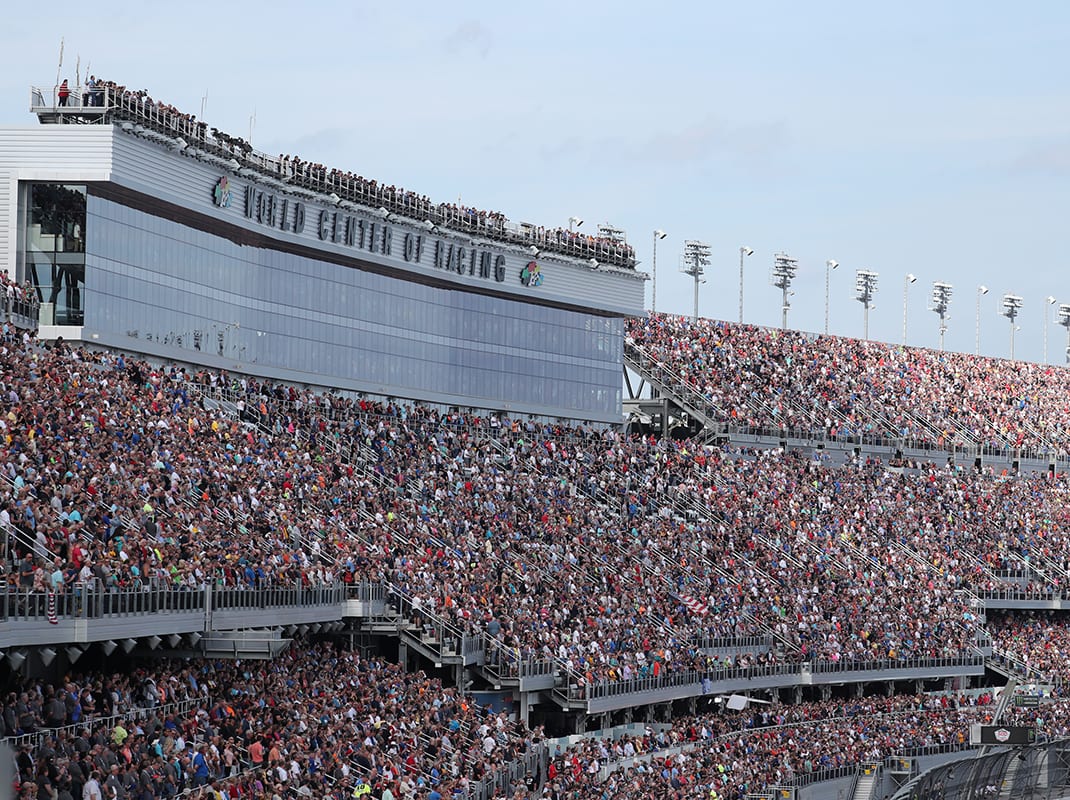WILMETTE, Ill. — International Speedway Corp. has entered into a merger agreement with NASCAR Holdings, LLC. This deal will combine the publicly-traded track operator with the privately held sanctioning body.
The deal was proposed on Nov. 4, when NASCAR offered to acquire all outstanding shares of International Speedway Corp. common stock not owned by the controlling shareholders. The France Family Group has a combined voting power of 74.71 percent of Class A and B shares.
The original offer was for $42 per share. For the year prior, shares had been trading between $35.12 and $47. The final deal went up 7.1 percent to $45 per share. The additional $3 per share added about $100 million to the transaction value.
International Speedway Corp. established a committee of independent directors to evaluate the deal. They also hired legal and financial advisors to evaluate the agreement.
During the next few months, there were few comments about the proposed transaction. During earnings calls, International Speedway Corp. management instructed analysts they would not answer questions about the deal.
The merger is subject to the customary approval and review process. Filings will be made to the SEC.
A proxy statement will be issued and shareholders will vote on the merger. This may be considered a formality since the France Family Group controls the majority of the votes.
The selling shareholder will receive $45 cash for each share. Brian France will sell all of his ownership stake and the other members of France family will become the sole owners of the combined NASCAR and International Speedway Corp. entity.
The transaction will also have to be submitted to the Department of Justice for review.
The previous litigation of Ferko vs. NASCAR (2002) and Kentucky Speedway, LLC vs NASCAR (2009) may be analyzed. The Ferko case resulted in a second NASCAR Cup Series race at Texas Motor Speedway and the Kentucky matter was dismissed.
One matter focused on the potential anticompetitive conduct by NASCAR and ISC, pointing to several alleged practices that purportedly show NASCAR and ISC may have colluded to shut out competition in the sanctioning and hosting markets.
The proposed merger is expected to close before the end of the year.
Transactions that do not materialize typically have financial implications. If ISC breaches certain terms of the agreement, it would pay NASCAR $78 million. Likewise, if NASCAR fails to honor terms of the agreement, it will pay $117 million to ISC and reimburse $15 million in transaction fees. These penalties provide incentives to make the deal happen.
The transaction has received financial commitments through various financial institutions, including Goldman Sachs, Bank of America and PNC Bank. Capital will be available with a $1.5 billion term facility and $150 million revolver. This debt will provide funds to buy out existing International Speedway Corp. shareholders and replace existing banking relationships.
Combining ISC and NASCAR into a private entity will provide flexibility and remove the scrutiny of the public marketplace. It will also create a sizeable sports and entertainment property that will be positioned favorably in the competitive marketplace.
